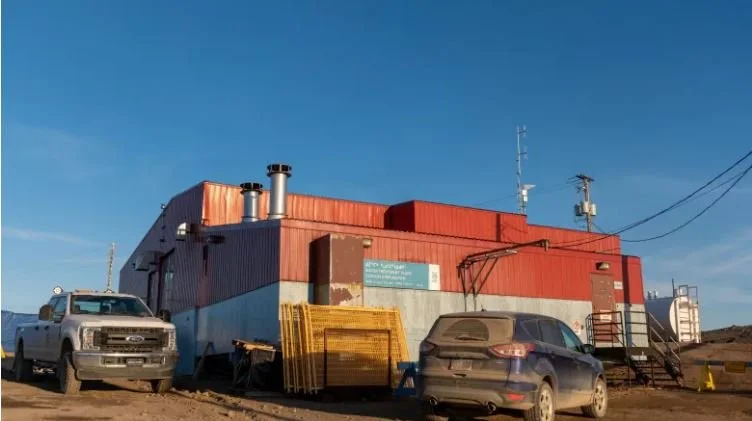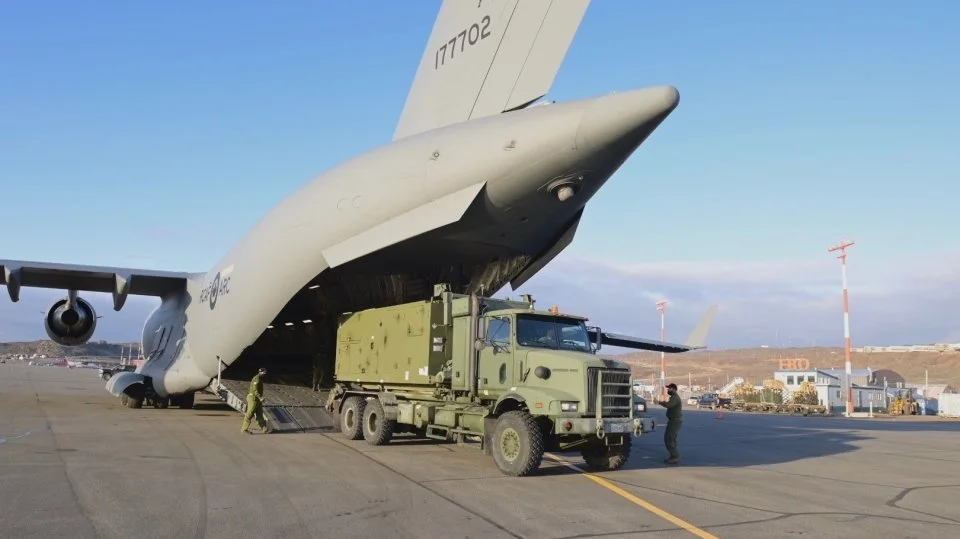People living in Iqaluit are being reminded to conserve water as the city continues to deal with a water shortage that first reached emergency levels back in 2018. Amy Elgersma, Iqaluit's chief administrative officer, told Nipivut host Mary Oblibuk Tatty this past week that water levels at Lake Geraldine, the reservoir for the city's potable water, are lower than the city would like them to be. There are three reasons why, she said.
Idlout calls for $180M from feds to fix Iqaluit water problems
Nunavut MP Lori Idlout is calling for $180 million from the federal government to “end the water emergency in Iqaluit.” The government should “fix an issue of basic human rights … as the federal government would for any other major Canadian city,” Idlout wrote in a Friday letter to federal Infrastructure and Communities Minister Dominic LeBlanc. Idlout didn’t say exactly what the money would be used for, but mentioned Mayor Kenny Bell’s recent statements that the city needs a new water source and treatment plant.
Report casts doubt on City of Iqaluit’s water contamination theory
Iqaluit’s water emergency is over, but it’s still going to take months of work to safeguard the city’s water treatment plant from possible future contamination, according to a risk assessment prepared by a consultancy firm hired by the Government of Nunavut. The territorial government hired Wood Environmental and Infrastructure Solutions in late October to review work done by the city’s hired consultancy firm, WSP Canada, after fuel contaminated the city’s water late last year. The six-page report, prepared by Wood, was obtained by Nunatsiaq News through Nunavut’s access to information law.
Iqaluit faced COVID-19, contaminated water and reconciliation in 2021
After about a week of reports in Iqaluit that the city’s water smelled of fuel, and the City of Iqaluit reassuring them it was safe to drink, further testing detected hydrocarbons and led to a two-month state of emergency. As the story developed over two months and national media outlets broadcast clips from Iqaluit, a patchwork system of supports started to materialize. The city and the Government of Nunavut flew bottled water up to the community, monopolizing a big portion of cargo space on incoming flights. Cargo employees worked overtime to offload the large shipments, while volunteers handed it out at pick-up stations and delivered it to homes.
Iqalummiut get a break on November water bills
Iqalummiut will not have to pay their water bills for the month of November as city councillors voted in favour of providing a 100 per cent rebate due to the water emergency. The move will cost the City of Iqaluit approximately $1.7 million, money council hopes the Government of Nunavut will cover. The Government of Nunavut had imposed a do-not-consume water advisory from Oct. 12 to Dec. 10 due to fuel contamination in the city’s water supply.
City recreation staff no longer assigned to water emergency
The City of Iqaluit’s recreation staff are back at the Iqaluit Aquatic Centre and the gym is open after they were reassigned on Dec. 1 to help with the water emergency. It remains unclear when the city will make other moves to return to normalcy, following a water emergency that lasted nearly two months, caused by the discovery of diesel fuel in the city’s water system. During that time, Iqalummiut were under a do-not-consume water advisory due to fuel contamination. On Dec. 10, the Government of Nunavut lifted that advisory.
City of Iqaluit Looks for Workers to Help with Water Distribution
The City of Iqaluit, Canada is hiring temporary workers to help with water distribution as its water emergency enters its seventh week, according to Nunatsiaq News. The city’s water emergency began in October, when people began complaining of a fuel-like smell in their tap water. On 12 October, the city reported fuel, later confirmed to be diesel fuel, had contaminated its water treatment plant. The city and Government of Nunavut declared states of emergency later that day that are still in effect. Volunteers played a significant role in water distribution earlier during the emergency, but support has since waned.
Iqaluit expects water testing to come back clean; tap water still undrinkable
Nunavut's capital city says it expects tests on its drinking water to show undetectable levels of fuel. Iqaluit is under a state of emergency and its roughly 8,000 residents haven't been able to consume tap water since Oct. 12 because of fuel contamination. The city says in a news release that it has finished work to remove hydrocarbons from the water treatment plant. It says it plans to continue flushing its water treatment plant until Thursday, and residents will need to flush their own pipes by running taps after that.
Military arrives in Iqaluit to set up reverse osmosis water purification
The Canadian Armed Forces says its members have arrived in Nunavut's capital to assist with the city's ongoing water emergency. Prime Minister Justin Trudeau tweeted Friday that he had spoken with Nunavut Premier Joe Savikataaq and the military would be deployed to Iqaluit to co-ordinate and deliver clean drinking water. Late Saturday, the military tweeted that there are over 20 Canadian Armed Forces members in Iqaluit setting up deployable equipment for reverse osmosis water purification.
Clean water for First Nations critical during the COVID-19 pandemic: Activists
Activists in northeastern Ontario fighting for safe, clean water in First Nations communities across Canada are getting tired of broken promises. After five years and millions in spending, the Liberal government announced in early December that it would not fulfill its commitment to end all long-term water advisories on reserves by March 2021. Although some progress has been made – 97 advisories have been lifted since November 2015 – there’s still a long way to go. There are 59 active long-term water advisories in 41 communities across the country, and activists maintain that clean water should be a priority for the federal government, especially during a global pandemic. “Water is a basic human right, and nobody should have to beg for it. This is wrong, and it’s come to the point where I think it comes down to racism,” said Autumn Peltier, a teenage water-rights activist from Wiikwemkoong Unceded Territory on Manitoulin Island.
Ottawa replaces federal bureaucrat working with Neskantaga First Nation during state of emergency
At the community's request, Indigenous Services Canada has replaced the top federal bureaucrat working with Neskantaga First Nation during its current state of emergency. Assistant deputy minister Joanne Wilkinson has taken over from Ontario regional director general Anne Scotton as the liaison between department officials and Neskantaga — a fly-in community about 450 km north of Thunder Bay, Ont., that has been under a boil-water advisory for 25 years.
NDP says province, Doug Ford need to 'step up to plate' during Attawapiskat water emergency
People in Attawapiskat continue to speak out about their water problems with some high-profile visitors this week. Attawapiskat's Chief and Council declared a state of emergency more than a week ago when water tests came back with higher-than accepted levels of trihalomethanes. Exposure to trihalomethanes can be connected to an increased risk of bladder and possibly colon cancer in people who drank chlorinated water for 35 years or more.











